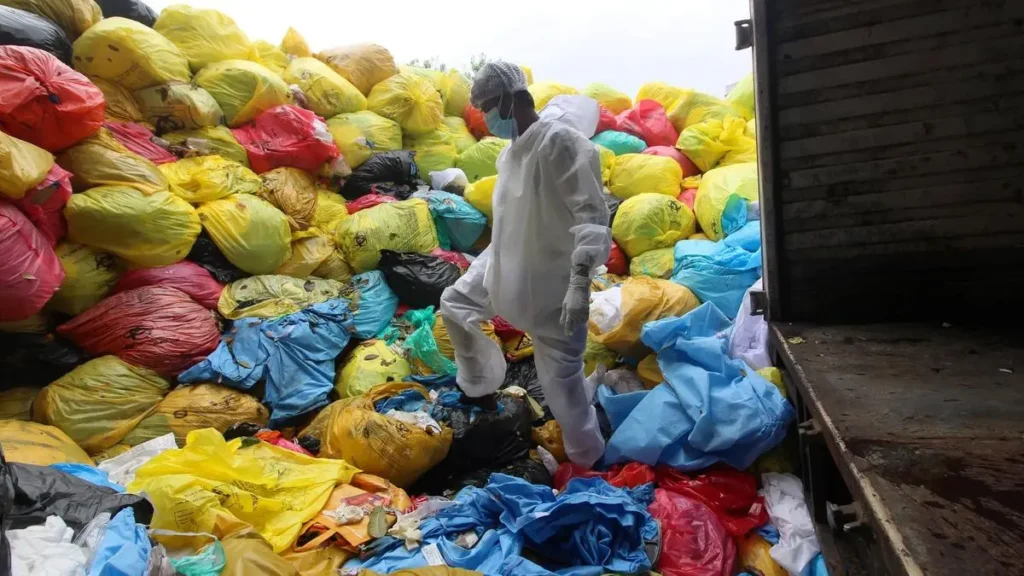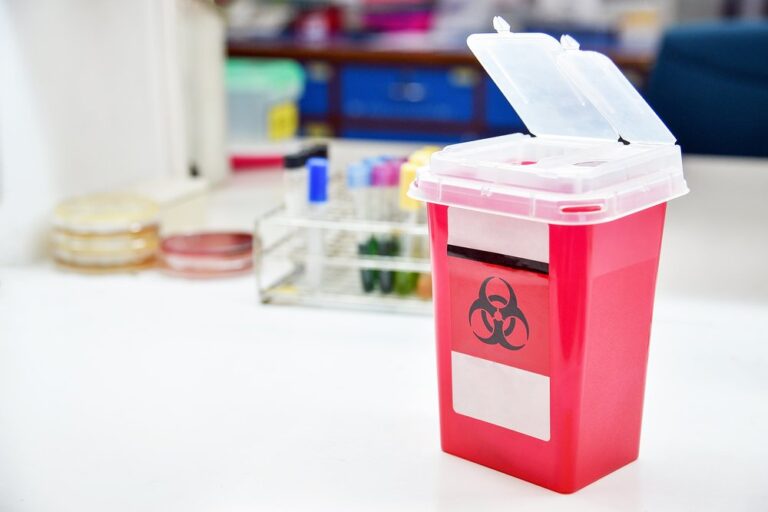Do you know the legal rules and regulations for medical waste management in Chicago 2024?
Keeping up with local regulations can be a daunting task as laws are ever-changing. Here, you will learn about the intricacies of medical waste disposal in Chicago to ensure compliance. From hazardous waste to sharps waste disposal, get up-to-date information to safeguard your business.
Overview of Legal Requirements for Medical Waste Management
Facilities that generate medical waste must utilize approved methods of disposal such as incineration, autoclaving or chemical treatment. Facilities must meet all environmental regulations to ensure that potential health risks associated with improper disposal of medical waste are minimized. Facilities must also keep adequate records pertaining to their storage, transportation, and disposal practices to ensure compliance with CDPH standards.
Medical Waste Management Service Providers or Transporters operating in Chicago must have a valid permit issued by the CDPH before engaging in transport activities within the city. They are expected to manage their operations in accordance with state and local laws regulating hazardous materials; this includes registering with their appropriate governing agency prior to going into business and implementing comprehensive operating plans for operations involving hazardous materials including: proper storage containers used for transport; sealed containers; manifesting systems; labeling requirements; emergency response training procedures; employee training on safety protocols during transport activities; vehicle inspections prior to each trip and periodic maintenance checks.
Environmental Protection and Pollution Control Measures

The City of Chicago is committed to protecting the environment and keeping our air, water, and land healthy. In order to ensure that medical waste management meets all legal requirements, Chicago’s Medical Waste Management Ordinance 2024 implements a number of pollution control measures.
These include:
- Strict restrictions on the disposal or release of medical waste into water resources or onto lands
- Prohibitions against discharge of leachate from medical waste sites
- Quality standards for landfill leachate
- Minimum requirements for wastewater treatment prior to discharge into sewers or other receiving waters
- Regulations to reduce fugitive dust from landfills and composting areas
- Requirements for inspections and record-keeping activities regarding the management of medical waste
- Tight regulations on storage, transport, and disposal of medical wastes.
Furthermore, all facilities generating or managing medical waste must comply with best practices in hazardous material handling and biosafety protocols established by local authorities.
Health and Safety Guidelines for Medical Waste Management

The City of Chicago requires that these protocols be conducted to protect public safety and health. To ensure standard best practices, the following regulations must be observed when collecting, transporting and disposing of medical waste within city limits in 2024:
Collection:
– All materials must be collected in safety-approved containers or bags as outlined by the Occupational Safety and Health Administration (OSHA).
– Containers/bags should be color coded for identification as medical waste.
– Containers/bags must be labeled with the appropriate medical waste collector, transporter, or disposal notification to ensure all parties are aware of their roles in managing the material.
– Items that may not fit in containers – such as human tissue or body parts – must be completely covered with impermeable material during collection.
Transportation:
– Transporter vehicles shall contain a manifest which identifies the contents, weight and type of each piece of waste being transported.
– Drivers shall wear air filtration masks while loading, unloading and transporting it.
– All transport vehicles must use signage to identify them as vehicles carrying it.
– Materials must be kept in an upright position on transport vehicles at all times when not unloaded for disposal at an approved facility.
Disposal:
– All materials must be disposed of according to recommended procedures outlined by OSHA standards or other governing bodies such as local environmental agencies and local health departments.
– Environmentally approved disposal methods should include incineration, heat treatment and/or landfills for beneficial reuse for select items. All landfill deposits should comply with local environmental requirements regarding leachate regulation or other hazardous materials regulations which may apply.
Financial Considerations for Medical Waste Management

Financial considerations for it refer to the costs incurred by entities responsible for generating and disposing of medical waste in Chicago. These costs can include both capital and operational expenditures. Entities responsible for generating it may incur direct costs from equipment servicing and supplies, along with training employees on safe disposal practices. Entities responsible for disposal may incur additional cost from transportation, packaging, processing, treatment, and disposal fees associated with a given type of medical waste.
Legal rules impacting financial considerations depend on the source of the medical waste and its intended destination. For instance, those generating and disposing of it are subject to fees or taxes imposed directly or indirectly through regulations imposed by state governments or private entities that operate hazardous materials control or knowledge systems. In addition to regulatory oversight, organizations must be aware of standards set forward by organizations such as the American National Standards Institute (ANSI) and Occupational Safety & Health Administration (OSHA).
Financial considerations also include paying fines in cases where an entity fails to comply with rules or regulations set forth by any governing body or authority due to negligence in following safety guidelines when managing hazardous materials.
Conclusion
The overall goal of this report is to provide a comprehensive overview of medical waste management regulations in the City of Chicago in 2024. This document summarizes the key legal rules and regulations considered during the research process and highlights important elements that organizations responsible for it must abide by when functioning within Chicago city limits. This report has also provided an examination of relevant trends and potential changes based on local, state, and federal laws which may affect future medical waste management obligations.
In order to adhere to all legal requirements for managing medical waste, organizations must be well-versed in the appropriate statutes and policies that impact their operations within Chicago city limits. All individuals must work together to maintain the health and safety of all citizens living in or visiting the City of Chicago by conforming to established regulations for proper disposal and handling of regulated medical waste materials.
